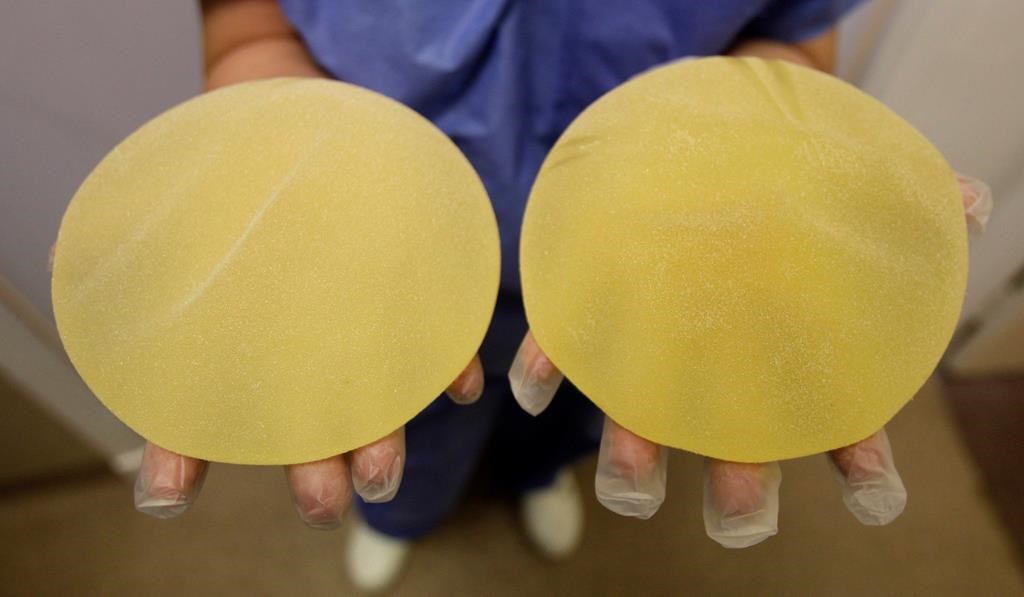Create national breast-implant registry to help prevent complications: committee

OTTAWA — The House of Commons health committee is echoing long-standing calls from plastic surgeons and patient advocates for a national registry to help prevent illness and problems linked to breast implants.
A national registry would allow the federal government to trace specific implants, contact patients in the case of a recall and contribute to research related to breast implants, the committee said in a report released Thursday.
Health Canada officials told the committee that breast implants are associated with a range of potential complications, including life-threatening ones.
Advertisement
Several private members’ bills have been introduced in Parliament calling for the creation of a national registry, but none have made it far.
“We shouldn’t still have to fight so hard for safety and tracking measures for devices that carry Health Canada’s highest risk rating and have known serious issues,” Nancy Pratt, a patient advocate with Breast Implant Failure & Illness Society Canada, said in May.
Those issues range from device failures to localized complications, effects of silicone migration, autoimmune systemic illnesses and a known link to cancer, deaths and recalls, said Pratt.
She told the committee that she unknowingly lived with breast implants that had been recalled.
The MPs on the committee suggest that recovering the costs to run the registry from breast-implant manufacturers.
Advertisement
The committee is also recommending that Health Canada formally recognize “breast-implant illness,” which is characterized by fatigue, anxiety, chronic pain and nervous-system dysfunction.
There is not currently a medical diagnosis associated with the pathology.
“Patients with breast implants often have symptoms suggestive of an abnormally functioning autonomous nervous system,” Dr. Jan Willem Cohen Tervaert, a professor of medicine at the University of Alberta, told the committee on May 9.
“Although an accurate estimation of how often this occurs does not exist, our studies suggest that one in four women, so 25 per cent, may develop at least three symptoms suggestive of this disease, 10 years after breast implants.”
The federal department is assessing illnesses linked to breast implants, but has not yet taken a position on the issue due to a lack of available data.
Advertisement
“Monitoring is taking place. Incident reports are evaluated on a regular basis by the department. There is no basis yet to change our approach to breast implant licensing,” David Boudreau, the director general of the medical devices directorate at the health department, testified in April.
Unlike Health Canada, the United States Food and Drug Administration does recognize breast implant illness, and warns about the potential symptoms on its website.
The committee recommends that the government put money toward researching breast implants, including their long-term health effects.
At the time the study was undertaken, the committee of MPs included only one woman, though other female MPs participated in the study as well.
This report by The Canadian Press was first published Nov. 30, 2023.
Advertisement
Laura Osman, The Canadian Press